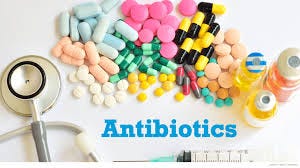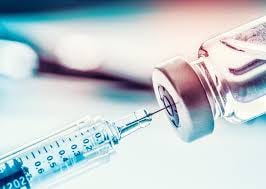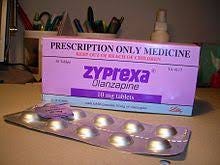Obesity rates are soaring worldwide, with accompanying increases in health costs. One would assume, therefore, there would be an urgent emphasis on trying to discover the real causes behind the phenomenon. Unfortunately, this is not the case, with pharmaceutical companies trying to find a profit-boosting superdrug that will reduce weight or pseudo health gurus promoting the latest fad diet as a quick means of success without either of them having any real knowledge of the etiology of obesity
Meanwhile many of the victims of obesity are often blamed and shamed for being lazy and greedy. True, unhealthy lifestyles can lead to obesity but in some cases, it may not be all the person’s fault. What if their predisposition to being overweight was a result of an imbalance in their gut bacteria? The science now says that this is, at least, one cause of obesity, with numerous studies implicating gut dysbiosis, as a causative factor in adiposity (1) (2) (3).
The Origins of Obesity
Having a compromised microbiome goes all the way back to the womb and one of the main reasons is the use of antibiotics in pregnancy. These decimate the gut flora, leading to an overabundance of more resilient bacteria and a deficiency of other species (4) (5) (6). If a pregnant woman uses antibiotics, they subsequently pass on their depleted bacteria to the baby. It has been shown that obese children are host to far less diverse species of bacteria than children of normal weight and, in one study, were 84% more likely to be overweight if their mothers were given antibiotics when pregnant (5).
The method of childbirth is also important. It has been demonstrated that children born via Caesarean Section are 48% more likely to be obese than those born naturally (5). This is because a baby accumulates a lot of the mother’s bacterial community when passing through the vaginal tract but this does not happen in babies born via C-section. (5) (7) (8).
Other Childhood Factors
Once a baby is born, the next major factor to influence their gut’s bacterial composition is whether or not they are breast-fed (8) (9). Bacteria in breast milk assists in the development of the baby’s own microbiome and breast-fed babies have a more diverse range of gut flora than those fed on formula milk and are less likely to be overweight. A Chinese meta-analysis study covering 226,508 participants concluded by saying –
“The results indicate a protective effect of breastfeeding for childhood obesity, and prolonged breastfeeding is directly related to a decreasing risk of obesity” (10).
As the baby grows, other influences come into play. The type of household disinfectants used in the home can be a factor as to whether or not a child becomes obese. A Canadian study found that, in homes where antimicrobial disinfectants were used once a week, the children had higher levels of Lachnospiraceae – a bacterium linked to obesity (11). Air pollution is another possible etiology for obesity. An article in Environmental Research links traffic - related air pollution to adiposity due to alteration of the gut microbiota. This can lead to an increase in gut permeability and subsequently bacterial translocation, systemic inflammation and obesity (12).
Just as antibiotics consumed by the pregnant mother affects the unborn child’s bacterial make-up, giving antibiotics to infants can cause dysbiosis, leading to a propensity towards obesity (13). Vaccines also play a part, as many have antibiotics like gentamicin, polymixin b, streptomycin and neomycin as ingredients (14). Some also contain thimerosal, a mercury-based preservative, which has antibiotic properties (15) and can therefore cause dysbiosis. Thimerosal in vaccines has been directly linked to obesity (16). Another vaccine ingredient is polysorbate 80 (14). This is also used as an emulsifier in processed foods and has been shown to cause an imbalance in the gut flora and subsequently obesity (17).
Food Additives
Food additives can lead to adiposity by adversely affecting the gut microbiome. Monosodium Glutamate (MSG), a flavour enhancer, used widely in the food industry, and another ingredient in vaccines, (14) is known to be an obesogen. Chinese researchers examined the impact of MSG on levels of obesity in men and women. They found that even when everyone had the same calorie intake and took a similar amount of exercise, people who consumed MSG had higher levels of obesity. In fact, those that ate the most MSG were three times more likely to be overweight than those that didn’t (18). Another study showed that whenever rats were given MSG they gained weight. However, when the rats were given probiotics after being given MSG they did not become obese, demonstrating the link between MSG, an altered microbiome and weight gain (19).
Ironically, artificial sweeteners like aspartame, sucralose and saccharin, which are incorporated into numerous foods, and are promoted as low calorie alternatives to sugar, actually cause obesity (20). An Israeli study found that the bacteria that proliferated in mice when fed artificial sweeteners were exactly the same as those found in high numbers in obese mice. Where humans are concerned, the same scientists found people who used artificial sweeteners more likely to be obese than those who didn’t (21).
Medication-Induced Obesity
As mentioned previously, both vaccines and antibiotics can cause obesity. Unfortunately, so can a wide range of other medications, with antidepressants and antipsychotics being implicated the most.
Olanzapine, prescribed for schizophrenia and depression, was found to alter the gut flora in animal studies, causing weight gain. In humans, the weight gain was so extreme, up to 15 kilos after two years of using the drug, that a warning had to be printed on the packaging informing patients of this worrying side effect (22). Another study examined the effect of Risperidone on mice. Again, this antipsychotic is known to cause weight gain in patients. The study discovered that the microbiota of the mice given the drug were significantly different from the control group and they concluded that this change resulted in suppressed energy expenditure and weight gain (23). A 1988 study found patients taking antipsychotics had a fourfold increase in weight gain (24).
The Possible Mechanisms Involved.
One reason why dysbiosis may cause obesity is because bacteria regulate two hormones, leptin and ghrelin (25). The former suppresses the desire to eat and the latter is an appetite stimulant. Lactobacillus plantarum, for example, can increase leptin levels (26) as can the bacteria of the Bifidobacterium, Mucispirillum and Lactococcus genera (27). Another study suggests e-coli can also suppress appetite (28). However, bacteria such as Bacteroides and Prevotella are associated with an increase in ghrelin (27).
One of the mechanisms behind bacteria’s ability to influence hormone production involves the creation of short chain fatty acids (SCFAs). These are formed after fermentation of carbohydrates by the bacteria. There are three SCFAs in particular linked to weight regulation. Two of them, butyrate and propionate, tend to be anti-obesogenic, promoting leptin production, whereas acetate tends to lead to weight gain and increased ghrelin levels (29) (30).
According to the authors of an article in ‘BioEssays', apart from affecting hormones related to satiety and hunger, other mechanisms may also be at work and they emphasise just how much control bacteria may have over our appetite –
“Like microscopic puppetmasters, microbes may control the eating behavior of hosts through a number of potential mechanisms including microbial manipulation of reward pathways, production of toxins that alter mood changes to receptors including taste receptors, and hijacking of neurotransmission via the vagus nerve” (31).
Conclusion
What the science now shows is that we shouldn’t be so quick to blame all obese people for their condition as they may not always have much control over their weight gain. What it also suggests is a way forward to potentially bring the obesity ‘epidemic; under control. Getting a patient’s full microbiota profile and then targeting them with specific species of probiotics could be the first step in addressing this issue. Then the obese people might get their health back and, in the process, the health services around the world would save vast sums of money by not having to prescribe dangerous, expensive and, ultimately, ineffective drugs.
References
1. Musso G, Gambino R, Cassader M, Obesity, Diabetes, and Gut Microbiota; Diabetes Care Oct 2010, 33 (10) https://www.ncbi.nlm.nih.gov/pmc/articles/PMC2945175/
2. Baothman Othman, A et al, The Role of Gut Microbiota in the Development of Obesity and Diabetes, Lipids in Health and Disease, June 2016, 15: https://www.ncbi.nlm.nih.gov/pmc/articles/PMC4912704/
3. Cornejo-Parejo, Isabel et al, The Importance of Gut Microbiota in Obesity, European Journal of Clinical Nutrition 2018 https://www.nature.com/articles/s41430-018-0306-8
4. Francino M.P., Antibiotics and the Human Gut Microbiome: Dysbiosis and Accumulation of Resistances, Frontiers in Microbiology 2015; 6: Jan 2016, https://www.ncbi.nlm.nih.gov/pmc/articles/PMC4709861/
5. Mueller N T et al, The Infant Microbiome Development: Mom Matters; Trends in Molecular Medicine Feb2015 21(2) , https://www.ncbi.nlm.nih.gov/pmc/articles/PMC4464665/
6. Jernberg C et al, Long-Term Ecological Impacts of Antibiotic Administration on the Human Intestinal Microbiota, International Society for Microbial EcologyMay 2007 1(1):http://www.nature.com/ismej/journal/v1/n1/full/ismej20073a.html
7. Reed Dr R, Johnson-Cash J, The Human Microbiome: Considerations for Pregnancy, Birth and Early Mothering; Midwife Thinking, Apr 2013 https://midwifethinking.com/2016/04/13/the-human-microbiome-considerations-for-pregnancy-birth-and-early-mothering/
8. Blaser MJ, Like Genes, Our Microbes Pass from Parent to Child; Scientific American Mar 2015, https://www.scientificamerican.com/article/like-genes-our-microbes-pass-from-parent-to-child/
9. Collado MC et al, Assessment of the Bacterial Diversity of Breast Milk of Healthy Women by Quantitative Real-Time PCR: Letters in Applied Microbiology 2009 May;48(5), https://www.ncbi.nlm.nih.gov/pubmed/19228290
10. Jing Y et al, The Association Between Breastfeeding and Childhood Obesity: AMeta-Analysis; BMC Public Health, Dec 2014, https://www.ncbi.nlm.nih.gov/pmc/articles/PMC4301835/
11. Dalton, Jane,Household Disinfectants May be Making Children Overweight, Scientists Find, The Independent,Monday 17 September 2018 , https://www.independent.co.uk/news/health/obesity-weight-children-babies-disinfectants-gut-bacteria-a8541396.html
12. Alderete, Tanya Lynn et al, Exposure to Traffic-Related Air Pollution and the Composition of the Gut Microbiota in Overweight and Obese Adolescents, Environmental Research 2018, Feb https://www.ncbi.nlm.nih.gov/pmc/articles/PMC5747978/#R27
13. McCarthy, Claire, Giving Babies and Toddlers Antibiotics Can Increase Risk of Obesity, Harvard Medical School, Nov 18, https://www.health.harvard.edu/blog/giving-babies-and-toddlers-antibiotics-can-increase-the-risk-of-obesity-2018113015477
14. Vaccine Knowledge Project, University of Oxford, Vaccine Ingredients, Aug 2017.http://vk.ovg.ox.ac.uk/vaccine-ingredients
15. The US Food and Drugs Agency, Thimerosal in Vaccines Questions and Answers, https://tinyurl.com/yeyndxxx
16. Geier, David A, et al, Thimerosal-containing Hepatitis B Vaccine Exposure is Highly Associated with Childhood Obesity: A Case-control Study Using the Vaccine Safety Datalink, Jul 2016, https://www.ncbi.nlm.nih.gov/pmc/articles/PMC4982359
17. Crampton, Linda, Polysorbate 80 Food Additive, Gut Bacteria, and Inflammation, 2017,https://healdove.com/digestion/Polysorbate-80-Food-Additive-Inflammation-and-Health-Problems
18. Science Daily, MSG Use Linked to Obesity, Aug 2008, https://www.sciencedaily.com/releases/2008/08/080813164638.htm
19. Savcheniuk, Oleksandr A et al, The Efficacy of Probiotics for Monosodium Glutamate-Induced Obesity: Dietology Concerns and Opportunities for Prevention, EPMA Journal, December 2014, 5:2, https://link.springer.com/article/10.1186/1878-5085-5-2
20. Yang, Qing, Gain Weight by ‘Going Diet?’Artificial Sweeteners and the Neurobiology of Sugar Cravings, Neuroscience 2010 https://www.ncbi.nlm.nih.gov/pmc/articles/PMC2892765/
21. Ruppel Shell E, Artificial Sweeteners May Change Our Gut Bacteria in Dangerous Ways; Scientific American, Apr 2015. https://www.scientificamerican.com/article/artificial-sweeteners-may-change-our-gut-bacteria-in-dangerous-ways/
22. Perlmutter, David, How Zyprexa Alters Your Metabolism, n.d. https://www.drperlmutter.com/zyprexa-alters-metabolism/
23. Bahr, Sarah M et al, Risperidone-Induced Weight Gain is Mediated Through Shifts in the Gut microbiome and Suppression of Energy Expenditure, EBioMedicine 2015 Nov; 2(11). https://www.ncbi.nlm.nih.gov/pmc/articles/PMC4740326/
24. Harshad, Joshi et al, A Possible Gut Microbiota Basis for Weight Gain Side Effects of Antipsychotic Drugs. n.d.,https://arxiv.org/ftp/arxiv/papers/1401/1401.2389.pdf
25. Cani, Patrice D, Knauf, Claude, How Gut Microbes Talk to Organs: The Role of Endocrine and Nervous Routes, Molecular Metabolism, 2016 Sep; 5(9) https://www.ncbi.nlm.nih.gov/pmc/articles/PMC5004142/
26. Valenlia, Khadijeh Bavafa et al, Beneficial Impacts of Lactobacillus Plantarum and Inulin on Hypothalamic Levels of Insulin, Leptin, and Oxidative Markers in Diabetic Rats, Journal of Functional Foods Vol 46, Jul 18, https://www.sciencedirect.com/science/article/pii/S175646461830210X
27. Neuman, Hadar et al, Microbial Endocrinology: The Interplay Between the Microbiota and the Endocrine System, FEMS Microbiology Reviews, Volume 39, Issue 4, 1 July 2015, https://academic.oup.com/femsre/article/39/4/509/2467625
28. Handwerk, Brian, Your Gut Bacteria Might Be Controlling Your Appetite, 2015, https://www.smithsonianmag.com/science-nature/gut-bacteria-may-be-controlling-your-appetite-180957389/
29. Chakraborti, Chandra Kanti, New-Found Link Between Microbiota and Obesity, World Journal of Gastrointestinal Pathophysiology, 2015 Nov 15; 6(4):https://www.ncbi.nlm.nih.gov/pmc/articles/PMC4644874/
30. Mole, Beth, Gut Microbes Sends message to the Brain That Sparks Obesity in Rodents, ARSTechnica, Jun 2016, https://arstechnica.com/science/2016/06/in-rodents-fed-high-fat-diets-gut-microbes-boost-hunger-trigger-obesity/
31. Alcock, Joe, Maley, Carlo C, Aktipis, C Athena, Is Eating Behavior Manipulated by the Gastrointestinal Microbiota? Evolutionary Pressures and Potential Mechanisms, BioEssays, 2014 Oct; 36(10):
https://www.ncbi.nlm.nih.gov/pmc/articles/PMC4270213/Vaccines and immunization: Thiomersal (who.int)







